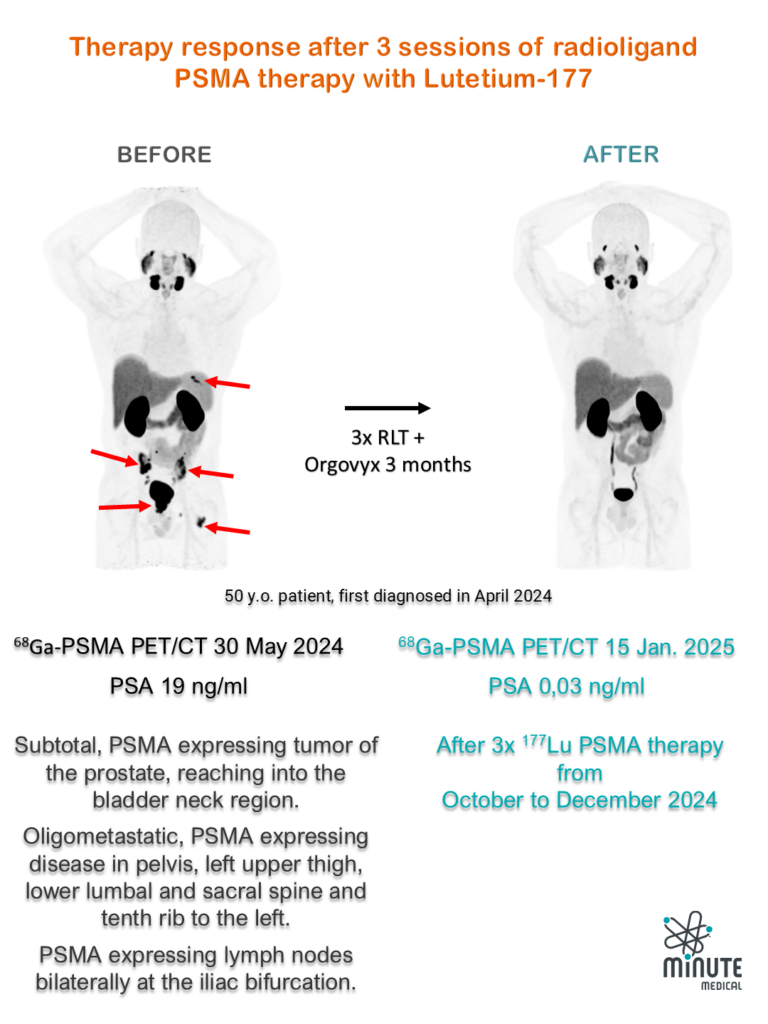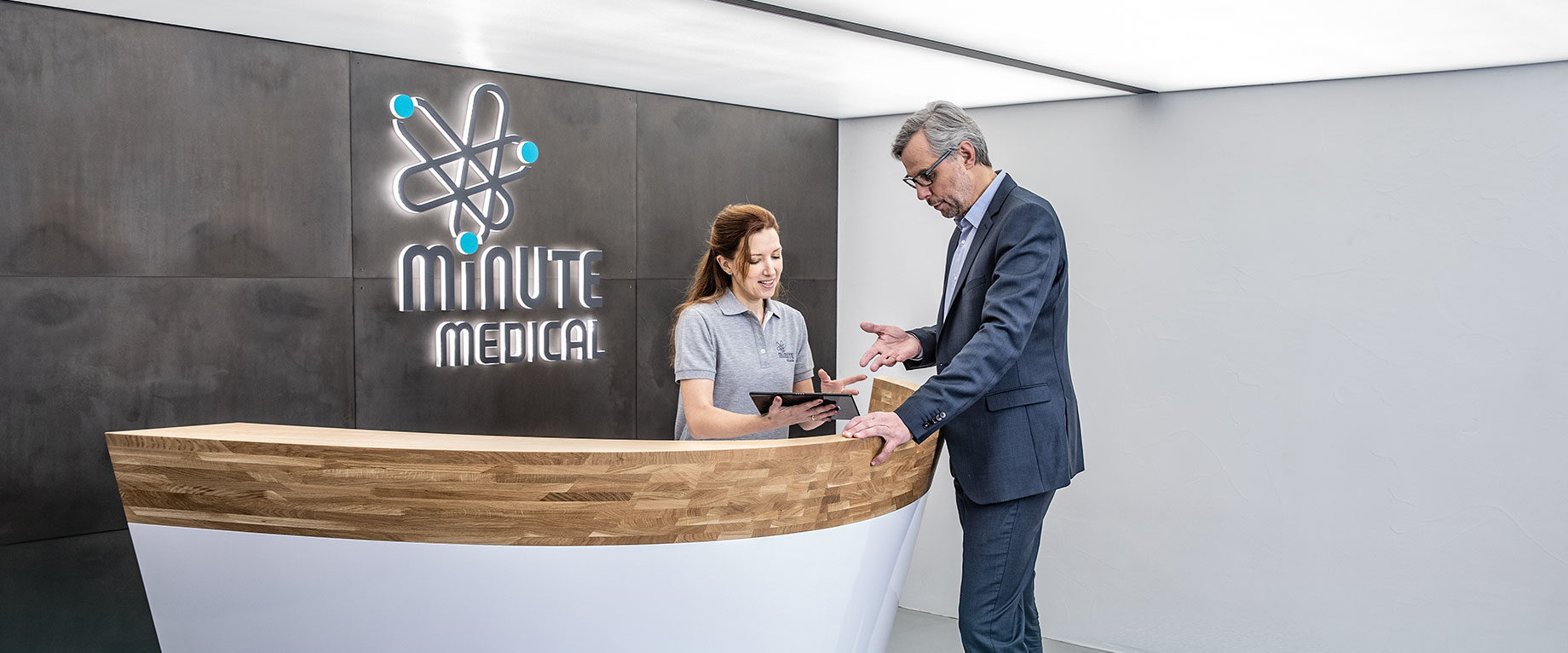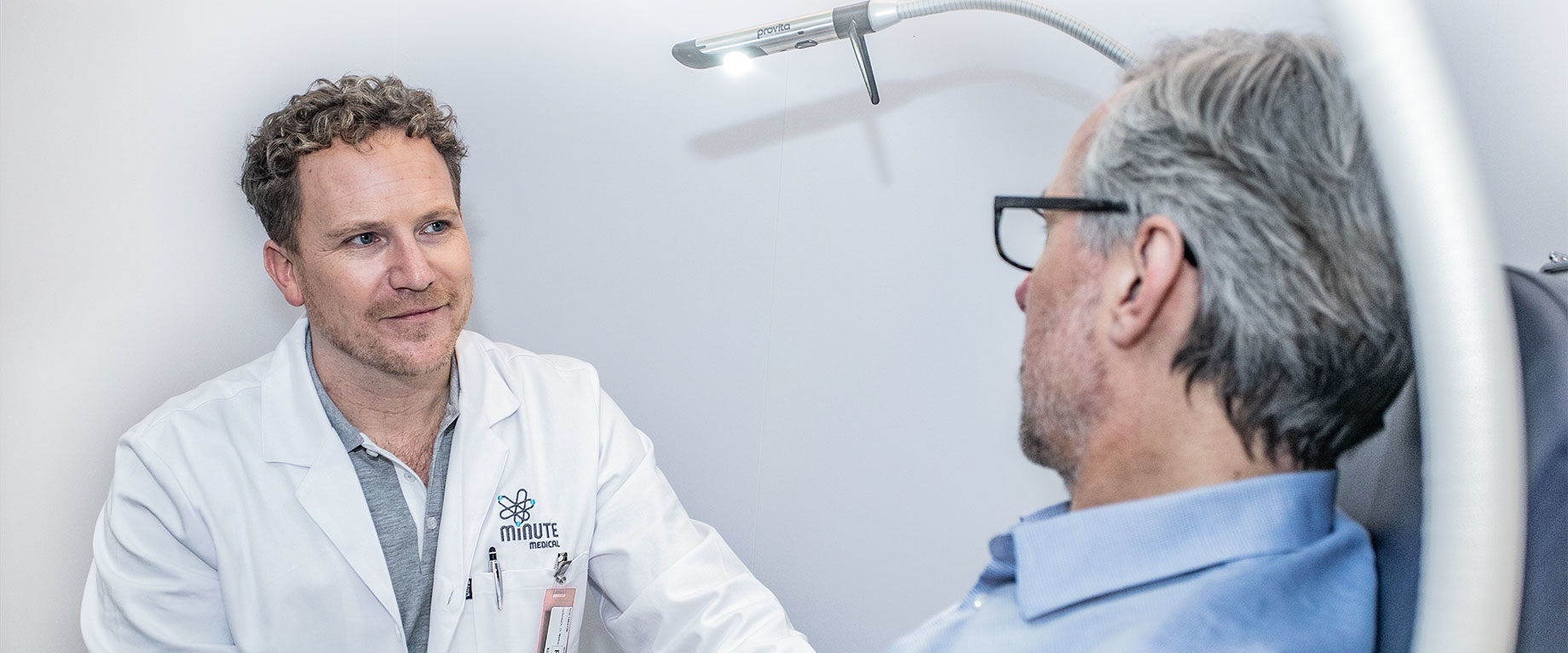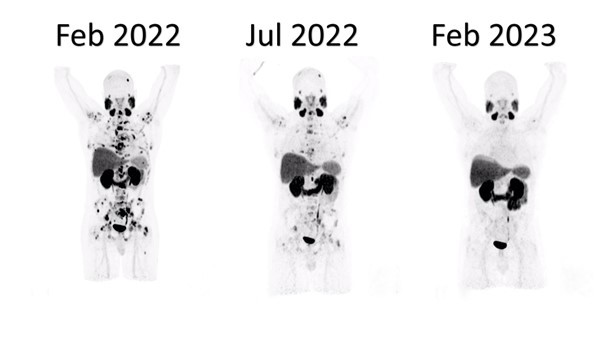Prof. Markus Hartenbach (MH): Hello and welcome to Minute Medical. My name is Markus Hartenbach and today we have a special guest here who's willing to give an interview. Professor Dr. Alexander Von Gabain, renowned microbiologist, founder, entrepreneur and much more. And we really appreciate that he's giving that interview today. Hello, Alexander.
A.G.: Hello, Markus. I'm looking forward to this interview and it's a pleasure for me to support you with what I have learned during the course of my disease and its treatments.
MH: Yes, we really appreciate that, Alexander. So you are not here as an analytical scientist. You are more here now because four years, pretty much exactly 4 years ago, there was a diagnosis that you were confronted with and maybe you can talk a little bit about what it was and what were the first steps.
A.G.: Well, I have been diagnosed indeed four years ago with an advanced prostate cancer with metastases in bones and in a number of lymph nodes. And being a molecular biologist and having worked by myself in oncology, I was aware that this will change my life upside down. It is a shocking experience and in the beginning you have life fear, and as a result, you lean on colleagues who are established and renowned. And I have to say, I was getting good treatment in a university hospital. The dilemma has been that the doctors, maybe also because I am coming from the field, they rather were inclined to implement for me the standard-of-care treatments. The standard-of-care treatments is of course suppressing of testosterone, nicely named by our colleagues as castration or chemical or really physical castration or also in sequence or together with a chemotherapy. And I have gone through this and there was some achievement.
But in honesty, you could still see in my body spreads of the original tumor and also the original tumor was still in the prostate. So this was quite a learning curve. And I have to say what I have learned from this curve is standard of care therapy is important and it's good. But as soon as you are breathing out and you see it's my cancer and it's my life, you have to see what else is on the way. And I was lucky to learn by accident, but also by systematically asking around in the circles of my colleagues and friends, that there are already the next generation treatments coming up. And I always see it through the eye classes of a molecular biologist. The chemotherapy and the hormone suppression therapy I have gone through was clearly still a medicine of the 20th century, but not of the 21st century. Why? I mean, they clearly hit the tumor, but they are far from being specific.
Take chemotherapy. Of course it's blocking most fast-growing cells, so it will block the cancer, but it also has partially very severe side effects on other tissue in your body which is dividing based on dividing cells.
Suppressing the hormones in itself is OK, but I think it's not specific. It also is taking away the testosterone for other functions where they are needed in your body for natural function.
So this learning curve was basically the kickoff point to find other therapies. And interesting, I came across and this is maybe a good thing about the prostate cancer. It has the most specific diagnostic method to discover tumor or tumor metastases in the body, namely by a specific molecule which binds to a surface structure of prostate cancer cells. And if you add the label on, for example, a radio label, you can identify wherever in the body there are still spreads of your cancer. And while I was going through this procedure several times and seeing that the treatments in part improved my conditions. I said, gee, if this is so specific to discover specific residual cancer cells in your body, there must be also a therapy which is based on this specificity. And that's when I met Markus and it wasn't quite an accident.
I heard about him through many sources and Markus explained to me that science has not been resting and I think they have been making this key molecule which is binding so to say to these receptors on the surface of prostate cancer cells by adding something on, you call this a magic bullet, which gives tougher radiation. But compared to the other treatments I have gone through, it is very, very specific. It only destroys cells where you have cancer cells which bind to the ligand and the ligand in the backpack has this radioisotope which is destroying the cancer cells. So that's just the story which I would say to give in short. But now we should not go into the depths.








